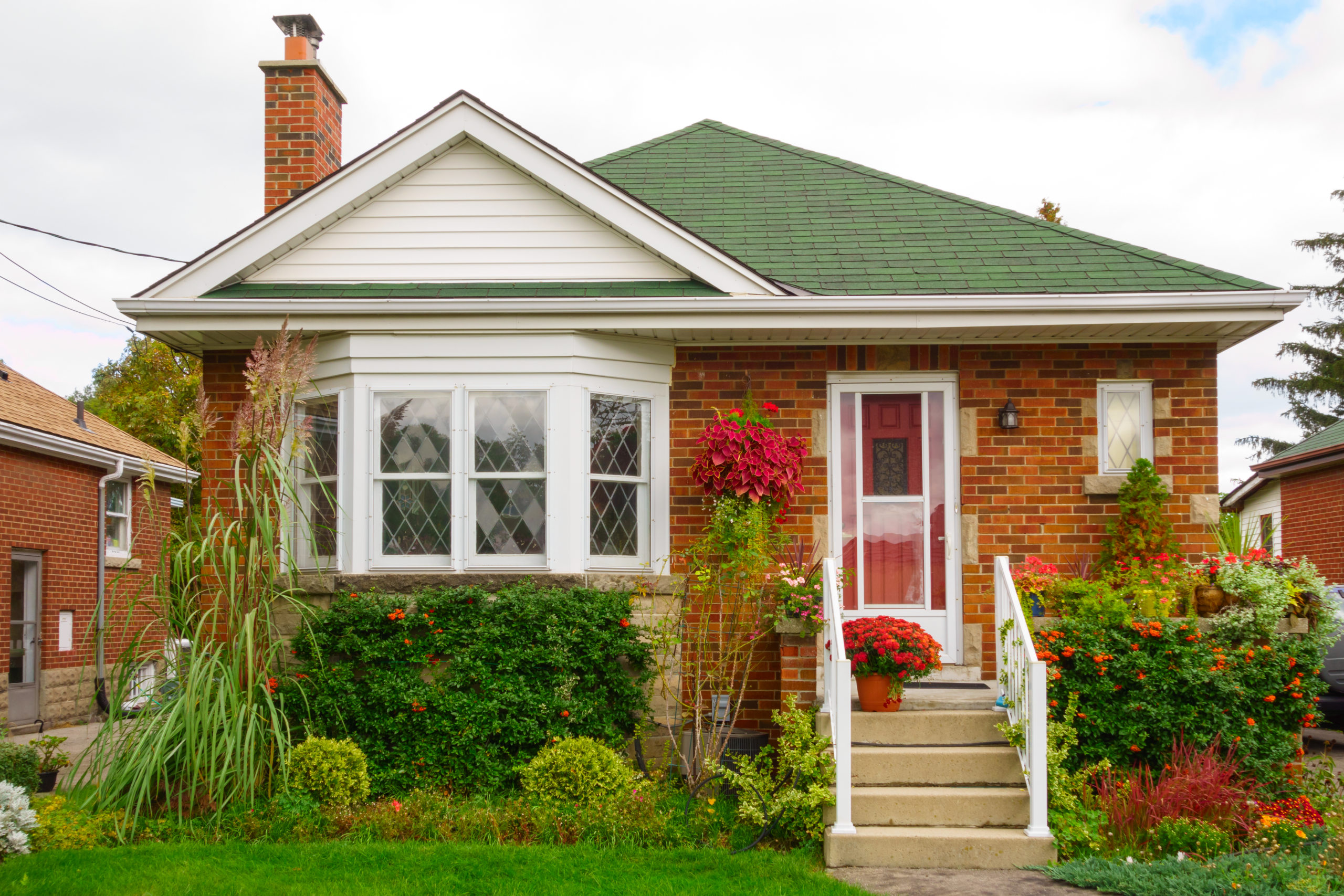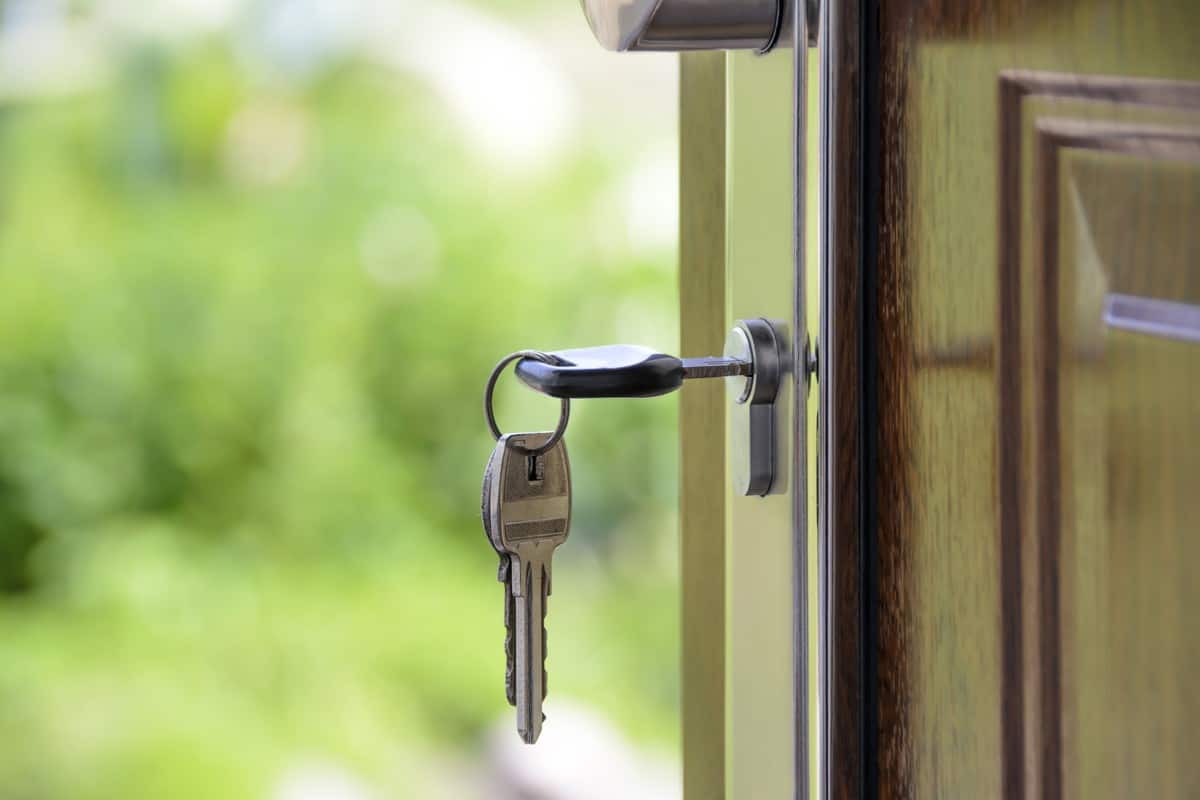With a brick exterior and 1,800 square feet between a ground floor and finished basement, my home seems like the perfect fit for my family of four. At least, that’s what I thought when we bought it. Our current house was an upgrade from our previous home, a 900-square-foot apartment.
The extra space was a relief — at first. But the shine quickly wore off, as I’ve since realized a bigger home comes with big trade-offs. The extra time, energy, and money required to clean and maintain our house is a big pain point for me.
I’ve definitely started to question if this bigger space is worth the hassles and costs — and I’m not the only one, either. Trends like the tiny home movement and van life show that more and more people are willing to live in small spaces to achieve a lifestyle they want.
Typically, a home with 600 square feet or less is considered “tiny.” And 63% of millennials say they’d consider buying a tiny home, according to the National Association of Home Builders.
These trends are in contrast to the growing size of a typical single-family home in America. Homes built in 2018 had a median square footage of 2,386, according to the U.S. Census Bureau. The average household size of owner-occupied homes in the same year was 2.71 people — which gives each person in a household about 880 square feet to themselves.
Even if you’re not ready to commit to the tiny-home life, it can be worth considering a smaller home or downsizing. Choosing a home that offers 300 to 500 square feet per household member (rather than the typical 880 square feet) can benefit both your happiness and your finances.
Sixty-nine percent of homeowners who downsized did so to save money, and 62% said lower costs were the biggest upside of this choice, according to a Homes.com survey.
Here are the top money-related reasons to consider purchasing a smaller home.
1. Smaller Homes Have Lower Sales Prices
Looking for homes with a smaller square footage can have a big impact on your homebuying costs. The 2020 median home listing price per square foot is $153, according to Zillow.
A home’s square footage doesn’t directly translate to lower costs — it’s not like shaving off 10 square feet will save you $1,500. But if you look for smaller homes with fewer bedrooms, you can likely set your homebuying budget lower than if you seek out bigger homes. With lower home prices and a smaller budget, this can bring your dream of homeownership within reach sooner.
That was a big reason that Emily Guy Birken, a finance writer and author, opted for a 1,800-square-foot cottage for her four-person household (plus a cat and an 80-pound greyhound).
“If we had been set on a 3,000-square-foot home in the same area, we would have had to rent for several years while saving up the down payment,” Guy Birken says. “Because we chose a smaller home, we were able to buy when we moved to Milwaukee, rather than waiting.”
A lower home price can also bring down other expenses, such as your closing costs, the size of your mortgage, and even your mortgage rate.
2. Lower Mortgage Payments and Better Cash Flow
“I chose a smaller home because I … never, ever wanted to be house poor,” says Britt Bruce, founder of Tiny Ambitions, a blog and podcast about simple living. Being “house poor” means that housing costs eat up too much of your budget, leaving you struggling financially.
The U.S. Census Bureau considers housing costs to be affordable when they account for 30% or less of household income, for example. If buying a bigger home means paying more than that for a mortgage, utilities, and other housing costs, it could make you house poor.
Buying a smaller and more affordable home with lower mortgage payments, on the other hand, can leave you more room in your budget.
Bruce could have bought a bigger and pricier home than she did. The price of her 750-square-foot bungalow was half the amount of the maximum home loan she was approved for. But when she compared mortgage payments on the small home she chose with what she would’ve paid if she had borrowed the max amount, Bruce found it was a difference of $20,000 a year.
“The biggest financial benefits of a smaller home is the flexibility you get when not all of your monthly income is already spoken for by your mortgage,” she says. With the extra money she has saved, Bruce has made big progress toward other financial goals, like saving and investing more.
3. Other Escrow Costs Are Cheaper
A downsized home can cut more than just the cost of your home loan. Your mortgage payment covers repaying this loan, but it also includes your costs for homeowners insurance and property taxes.
Your mortgage payments are held in an escrow account, which your mortgage servicer uses to ensure these important expenses always get paid. And these expenses are typically lower for a small home versus a comparable, larger house.
A standard homeowners insurance policy, for example, provides coverage up to the cost of rebuilding the home. But the higher that estimated cost, the more you’ll pay in home insurance premiums.
Rebuilding costs are estimated by multiplying average local building costs by the total square footage of your home. Thus, a smaller home requires less coverage and allows you to buy a cheaper homeowners insurance policy.
Property tax is calculated on your home’s value. But the method your local government uses to assess the home’s value (and tax you on it) typically takes the home’s square footage into consideration. Check your state and local property tax codes to see how a home’s size can affect property taxes.
4. Smaller Homes Are More Energy-Efficient
Another cost that’s lower for smaller homes? Energy bills.
A small home is more efficient than larger homes, as it requires less energy to keep a smaller space temperature-controlled and comfortable. Smaller homes also have fewer lights and other appliances. Some energy-efficiency upgrades will also be cheaper on a smaller home, such as replacing insulation or upgrading to more efficient windows.
A smaller home under 1,500 square feet saves $290 to $730 per year compared to the average home’s energy costs, according to 2018 data from the U.S. Energy Information Administration.
Here are the average annual energy expenses by square feet:
- Average of all homes: $1,856
- Less than 1,000 square feet: $1,126
- 1,000 to 1,499 square feet: $1,569
- 1,500 to 1,999 square feet: $1,919
- 2,000 to 2,499 square feet: $2,088
- 2,500 to 2,999 square feet: $2,282
- 3,000 square feet or greater: $ 2,631
5. Lower Maintenance, Improvement, and Upkeep Costs
Having less space to clean can make regular upkeep easier and less time-consuming. “The biggest pro is probably that it takes me less than 20 minutes to vacuum the entire house,” Bruce says.
For me, I’ve definitely struggled to find a chore routine that keeps my 1,800-square-foot house neat and tidy. I even tried hiring a cleaning service that cost $120 per week to try to keep up.
There’s also the cost of my time on upkeep. Since I’m a freelancer, time spent on chores like cleaning an extra room takes away from time that could be spent earning more.
Many maintenance, repair, or improvement jobs add costs in materials and labor, which can be a lot cheaper for smaller homes. A common budgeting guideline for home repairs suggests setting aside $1 per square foot, per year, according to Liberty Mutual Insurance. Roof repairs or replacements are among the most expensive home repairs, for example, and the cost of these is based on the square footage of your roof.
6. Cheaper To Furnish
With no space to put a second or even third TV and no spare room to house a guest bed, you can skip those expenses altogether — and save hundreds of dollars in the process.
Smaller spaces will also curb the temptation to keep buying stuff. “A major upside of a smaller home is that it doesn’t really allow you to fill it up with stuff,” Bruce says.
This check on spending can help small homeowners make more mindful and intentional choices about what they want to bring into their home. And that means less money wasted on stuff you don’t really want or need.
The Bottom Line on Buying Smaller
Choosing a smaller, more affordable home could help you become a homeowner sooner, and you could pay less in a down payment and other upfront costs. It’s also easier on your budget once you own your home, as it can result in lower mortgage payments and utility costs.
Along with paying less, you might get more use out of a smaller home. “I love the fact that there aren’t any rooms that go ‘unused’ in our house,” Guy Birken says. “We’re not paying for anything we don’t use.”
All these benefits might make it worth considering whether a small home is a better match for your budget — and your life.



